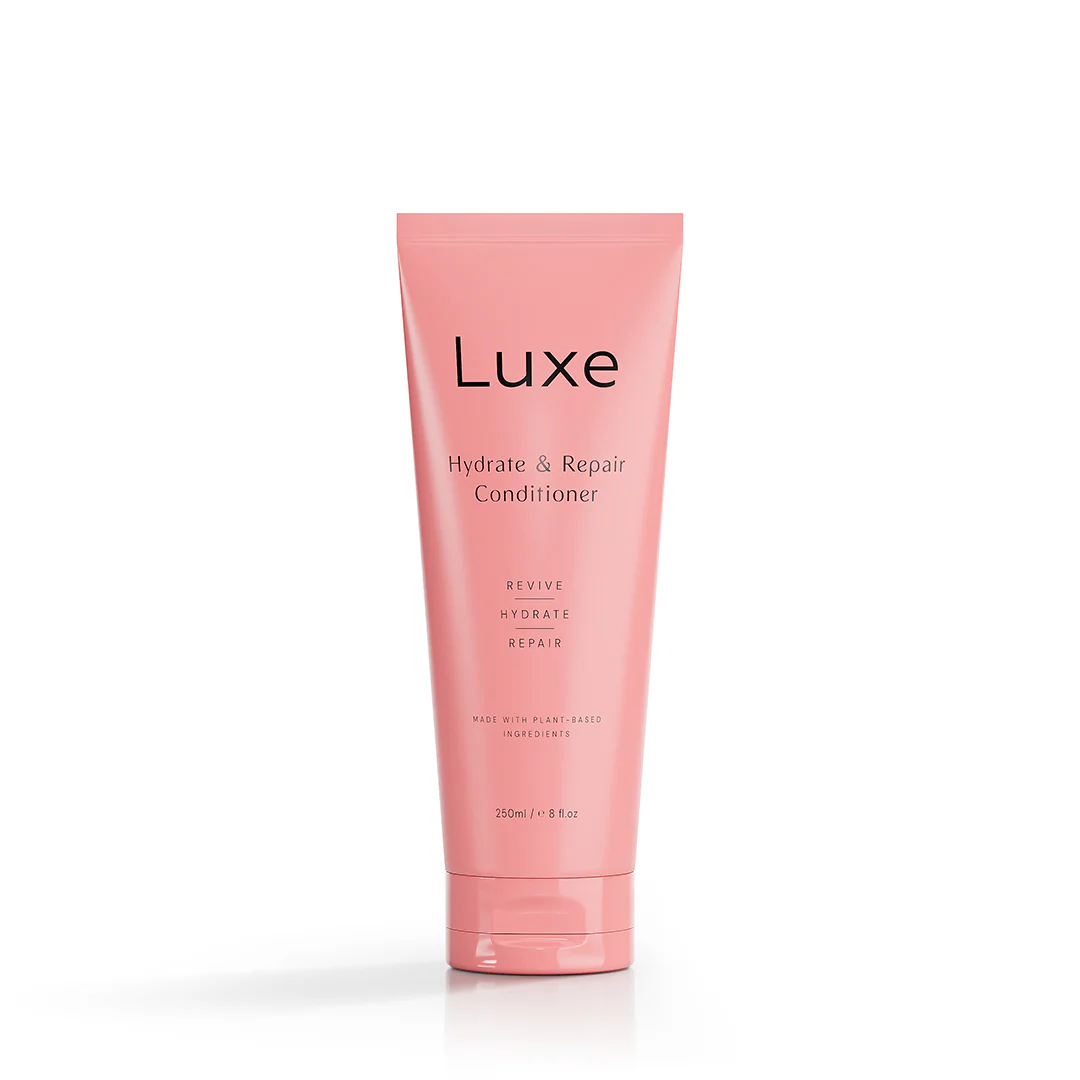Choosing the right conditioner for oily hair while promoting growth can be challenging. Many products designed to stimulate hair growth tend to be heavy and moisturizing, potentially exacerbating oily scalp issues. The ideal hair growth conditioner for oily hair should balance nourishing ingredients with lightweight formulations that won’t weigh down strands or contribute to excess sebum production.
When searching for the perfect conditioner, look for products that contain natural clarifying agents like tea tree oil or salicylic acid. These ingredients help control oil production while supporting a healthy scalp environment conducive to hair growth. Protein-rich formulas can also strengthen hair strands without adding unnecessary weight.
For oily scalps it is often important to consider treatments, such as a hydrate and repair conditioner by Luxe Cosmetics incorporating lightweight hydrators and vitamins that nourish the hair without overwhelming the scalp. Remember to focus application on the mid-lengths and ends of your hair, avoiding direct contact with the scalp to prevent additional oil buildup.
Key Takeaways
- Choose lightweight, oil-controlling formulas that support hair growth
- Look for clarifying and protein-rich ingredients in conditioners
- Apply conditioner strategically to nourish hair without overwhelming the scalp
Understanding Oily Hair and Scalp
Oily hair results from excessive sebum production in the scalp. This condition affects hair texture, volume, and overall appearance.
Factors Contributing to Oily Hair
Hormonal imbalances often trigger increased sebum production. Androgens, particularly during puberty and menstruation, stimulate oil glands in the scalp.
Genetics play a role in determining sebaceous gland activity. Some individuals are predisposed to higher oil production due to their genetic makeup.
Stress can exacerbate oily hair issues. It triggers hormonal fluctuations, leading to increased sebum output.
Environmental factors like humidity and pollution can worsen oily hair conditions. These elements can cause the scalp to produce more oil as a protective mechanism.
Characteristics of Oily Hair
Oily hair appears greasy and limp, often lacking volume. The excess sebum weighs down strands, making them look flat and lifeless.
Scalp irritation and itchiness are common with oily hair. The buildup of oils can clog pores, potentially leading to scalp issues.
Hair becomes dirty quickly, often requiring daily washing. However, frequent washing may paradoxically stimulate more oil production.
Oily hair tends to attract more dirt and pollutants. This can result in a dull appearance and increased susceptibility to odors.
Styling difficulties are typical with oily hair. Products may not hold as well, and hairstyles often lose shape quickly due to excess oil.
Selecting the Right Hair Growth Conditioner
Choosing an effective hair growth conditioner for oily hair requires understanding key ingredients, avoiding certain components, and considering specific hair types. Proper application techniques also play a crucial role in maximizing results.
Key Ingredients for Oily Hair
Hair growth conditioners for oily hair should contain lightweight, non-greasy ingredients. Tea tree oil, rosemary, and peppermint are excellent choices due to their clarifying properties. These natural oils help control excess sebum production without weighing down the hair.
Biotin and keratin are essential for promoting hair growth and strengthening strands. Look for products that incorporate these ingredients in their formulas.
Apple cider vinegar can help balance scalp pH and remove product buildup, making it a valuable addition to hair growth conditioners for oily hair.
Salicylic acid is beneficial for its exfoliating properties, helping to remove dead skin cells and unclog hair follicles.
What to Avoid in Conditioners
When selecting a hair growth conditioner for oily hair, avoid products containing sulfates, parabens, and silicones. These ingredients can contribute to product buildup and weigh down hair, exacerbating oiliness.
Opt for sulfate-free and paraben-free formulas to minimize scalp irritation and preserve natural oils. Silicone-free options are preferable as they prevent residue accumulation that can lead to greasy-looking hair.
Heavy moisturizing agents like shea butter or coconut oil may be too rich for oily hair types. Instead, look for lightweight, hydrating ingredients that won’t overwhelm the scalp.
Conditioners for Specific Hair Types
For fine hair prone to oiliness, choose a volumizing conditioner with lightweight moisturizers. These formulas add body without weighing hair down.
Curly hair requires extra hydration, even when oily. Look for products that balance oil control with moisture retention to maintain curl definition.
Color-treated hair benefits from sulfate-free, color-safe conditioners that protect dye while managing oiliness. These formulas help preserve hair color vibrancy.
Thick hair may need more potent ingredients to penetrate the strands. Opt for conditioners with concentrated active ingredients that can effectively nourish without causing buildup.
Conditioner Application Techniques
Apply conditioner primarily to the mid-lengths and ends of hair, avoiding the scalp area. This technique prevents additional oil accumulation at the roots.
Use a wide-toothed comb to distribute the product evenly through your hair. This ensures thorough coverage and helps detangle strands.
Rinse thoroughly with cool water to seal the hair cuticle and enhance shine. Proper rinsing is crucial to prevent product residue that can contribute to oiliness.
Consider using a clarifying shampoo once a week to remove any buildup, followed by your hair growth conditioner for optimal results.
Conclusion
Choosing the right hair growth conditioner for oily hair requires careful consideration. Look for products with lightweight, oil-regulating ingredients that won’t weigh hair down. Natural extracts and proteins can nourish strands without excess greasiness.
Avoid heavy silicones and oils. Instead, opt for conditioners containing clay, amino acids, or keratin to balance the scalp and promote healthy growth. Regular use of a suitable conditioner can lead to stronger, fuller hair over time.

